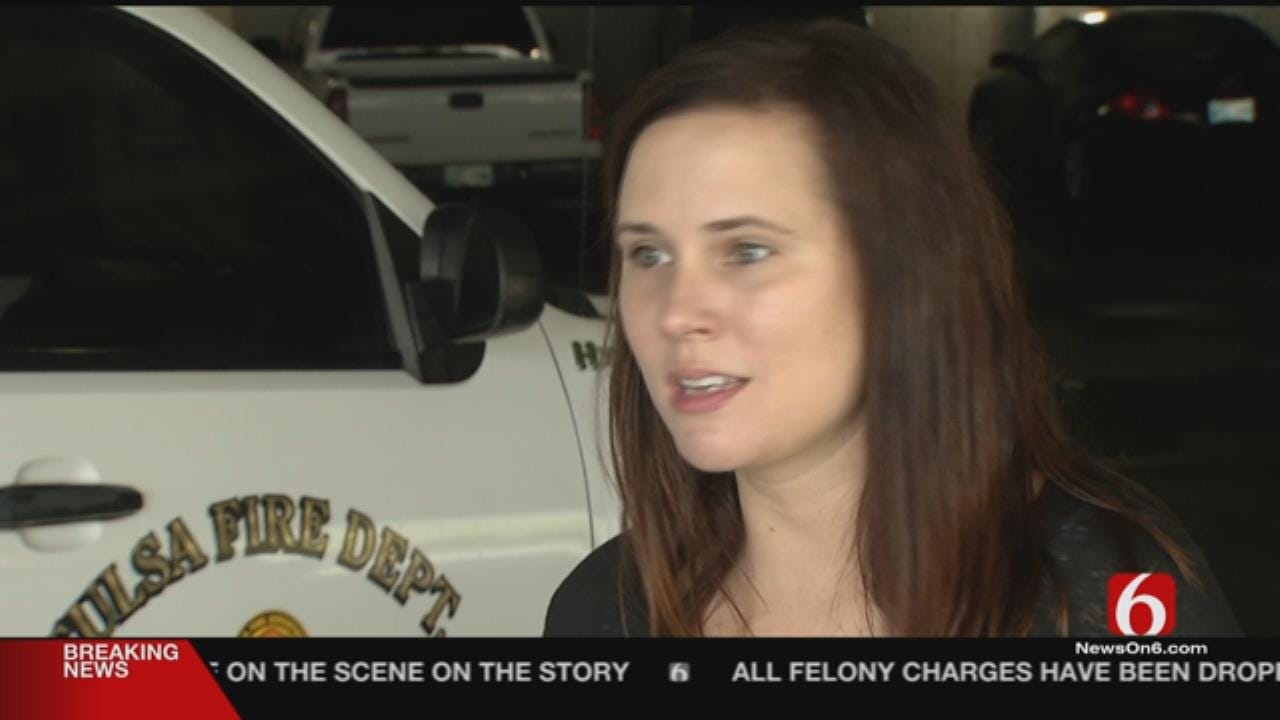Tulsa's Community Response Team Handles Mental Health Crises
<p>Tulsa's Community Response Team took to the streets today.</p>Tuesday, August 1st 2017, 7:32 pm
Tulsa's Community Response Team took to the streets today.
The team will help first responders handle mental health crises.
7/31/2017 Related Story: Tulsa Program Teaches First Responders How To Handle Mental Health Calls
The team will run four days a week for the next month.
It will include a mental health professional, a police officer and a firefighter or paramedic all working together.
Just before 11 a.m. Tuesday the CRT got their first call.
A 30-year-old woman with a history of mental illness was not doing well.
"Just a lot of attentive listening, you know, we are still getting information about what's going on with them, the signs and symptoms of their mental illness, and then coming up with some kind of plan," said Megan Henderson, LPC mental health professional.
The woman was assessed as being safe.
The COPES unit from Family and Children's Services will follow up.
The CRT's goal, is to provide a more streamlined approach to mental health crises.
The team carries standard supplies including a basic mediCal kit, but they also have unique items.
"Some things you don't think of, dog treats, dog food, sounds crazy, but if somebody's mentally ill and they have a pet they may not go to the hospital if they need to feed their dog. So sometimes by just taking care of their dog, you can get them to be on your side a little more," said Tulsa Fire Department Captain Bill Esmeyer.
The team monitors police and fire dispatch in real time, responding directly.
Their goal, to work together to rapidly diagnosis and deescalate the situation.
"They're seeing a care team basically show up now our function is still serve as security and safety for the team so in that roll were the same but we do, work together with a therapist and with a paramedic to meet the whole persons needs," said Tulsa Police Department Mental Health Coordinator Captain Shellie Seibert.
The CRT believes that by combining their expertise, they are able to make a positive impact in the Tulsa community.
"For the community it's great. We don't clog up the other places, we don't clog up the jail, we don't clog up the hospital, things like that. They're going straight to where you need to be and they're getting better care," Esmeyer said.
They'll collect information over the next month to decide if this program will continue long-term.
More Like This
August 1st, 2017
September 29th, 2024
September 17th, 2024
Top Headlines
November 21st, 2024
November 21st, 2024
November 21st, 2024
November 21st, 2024










